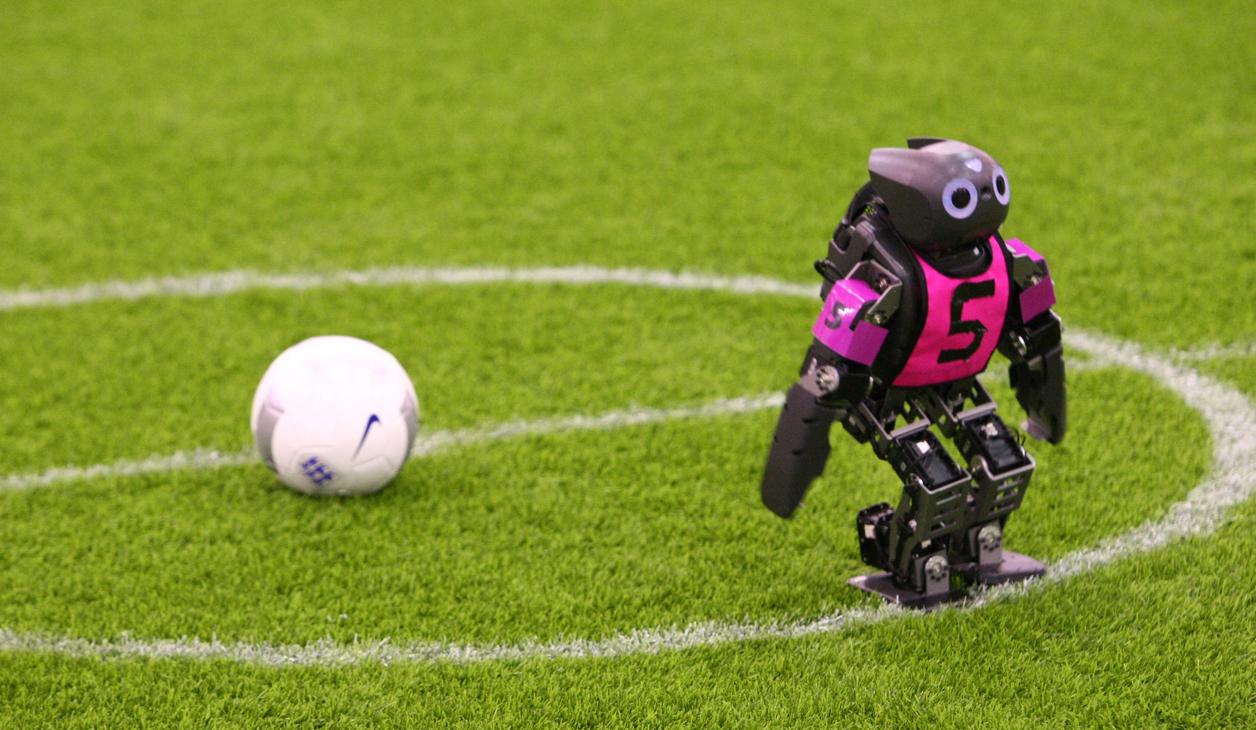The RoboCup world soccer championship proves humans will dominate sports for a while
A robot competes in a game during the 19th RoboCup World Competition and Symposium on July 20, 2015 in Hefei, Anhui Province of China.
Robots can already do our jobs and help fight our wars, but they've got a long way to go before they can beat us at sports.
This week, hundreds of robot soccer teams representing 47 countries faced off in Hefei, China, hoping to be crowned winners of the 19th annual RoboCup World Championship.
The robot players are fully autonomous. Engineers build everything that allows them to collect spatial information, make decisions, and complete movements, but once the robots are on the pitch, they're on their own.
The results were equal parts impressive and hilarious.
Watching the highlights, you'll probably come away with two impressions.
1. Wow, these robotics engineers are total geniuses and these robots are amazing.
2. Wow, these robots are terrible at soccer.
RoboCup's organizers want to host the first robot v. human soccer game in 2050.
There's a lot left to do.
This year's competition ended Wednesday.
A US squad won top prize in the adult-size humanoid category. "THORwin," a team from the University of Pennsylvania, beat Iran's "Baset Adult-Size" by a score of 5-4.
In the child-sized humanoid category, a Japanese team from the Chiba Institute of Technology, "The Brain Kids," narrowly defeated "ZJUDancer," from Zhejiang University in China in a tight game that ended 1-0.
And in the "standard platform" group — a test of programming skill in which teams compete using robots that are standardized in terms of their hardware, but not in terms of programming — an Australian team from the University of New South Wales beat a German team from University of Bremen and the German Research Centre for Artificial Intelligence, 3-1.
"They tell everyone else where they are on the field and where the ball is. And they make decisions," explained Sean Harris, the UNSW team's captain and a PhD student in the Scholl of Computer Science and Engineering. "Maybe one player will play goalkeeper and another player says, 'I'm the closest to the ball. I'm going to kick it.' And someone else says, 'I'll pass here, I'm standing here,' or things like that. They try and position around the field and things like that. And then they share all that information — everybody knows what everyone else is doing."
According to Harris, the team has been working on their code base since 1999, building on the work of alumni that came before.
Their comparative advantage? Speed.
"Everyone has the same robots. So it's all about how you program them and the intelligence," Harris said. "But we are fast. We have a really fast walk. So we are fast, we get to the ball first."
That's right — in the robot world, soccer can be dominated by a team with a "fast walk."
We're safe for now, humans. For now.
We want to hear your feedback so we can keep improving our website, theworld.org. Please fill out this quick survey and let us know your thoughts (your answers will be anonymous). Thanks for your time!
